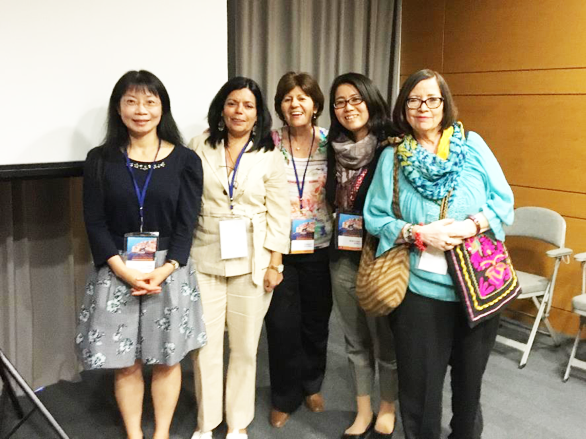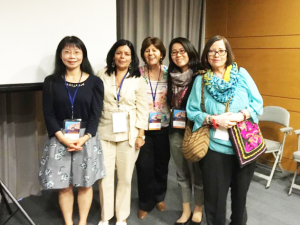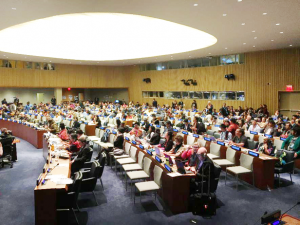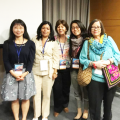
Kyoto University
Specially Appointed Associate Professor, Center for African Area Studies,
Junko Maruyama
4/9/2016-06/25/2016
-The Global South Studies Center, University of Cologne
– Inter-congress of the International Union of Anthropological and Ethnological Sciences, Croatia
-The 15th session of the Permanent Forum on Indigenous Issues of United Nations, USA
-National archives, UK
1.
This research project aims to elucidate contemporary dynamics and reshaping process of “traditional culture” and “ethnicity” of several groups in Southern Africa. Taking a case-sensitive approach to San communities in Botswana and South Africa, and the Swazi communities in Swaziland, the following three aspects are focused; 1. Land rights movement, 2. Traditional authority and leadership, 3. Traditional cultural tourism. The local strategies, interaction among the neighboring ethnic groups, and the relations with national and global communities in the three occasion are investigated. The research highlights the shared experiences among the different target communities reflecting southern African history and macro-level political economical situation, as well as the distinctiveness of each communities in different national and historical contexts.
2.
During my stay in Cologne, I participated in several seminars, lectures and symposium and had occasions to exchange ideas with professors and researchers in the university. Particularly the discussion on the land rights movement of African minorities with Prof. Pelican and Prof. Widlok was important for my research project. I gave a talk for the GSSC lecture series, entitled “Contemporary dynamics of Social relationships and residential practices among the San hunter-gatherers in Central Kalahari” and attended the lecture series every week. In addition, I was invited to graduate student seminars, symposiums, academic film showing as a chair or a commentator.
At the inter-congress of the International Union of Anthropological and Ethnological Sciences (IUAES), Croatia, my paper “Possibilities and Dilemmas of Indigenous Land Rights Movement of the San Hunter-gatherers: Comparison of Two Cases from Botswana and South Africa” was accepted and presented for the Panel “Ethnicity, territories and indigenous peoples: paradoxes and challenges of neoliberal policies”. The panel discussion focused on the impact of global neoliberalism on the indigenous communities in Asia, Africa and Latin America.
In New York, I attended at 15th Session of the Permanent Forum on Indigenous Issues of United Nations as well as it’s related side events organized by several different NGOs and academic organizations. During the forum, I made several interviews on their social movement and leadership issues with the representatives of indigenous groups of Africa including San, Maasai, Sambulu, Mbororo etc.
Archive research was done at the National Archives in United Kingdom. The relevant records to the colonial official action directed at “tribes” in the two protectorates, Bechuanaland and Swaziland, were collected from the Colonial Office Records.
3.
GSSC provided me excellent academic environment. I could constantly have great discussions with some experts of the African studies, as well as many of young colleagues in the same GSSC office building. Particularly, the discussions on the issue of indigenous peoples with Prof. Pelican was exciting for me. It was also great to have some meetings with the San specialists based in Cologne to exchange the information of current situation of the San peoples in Botswana and Namibia.
Discussion with indigenous representatives in UN was significance to understand the reality of global indigenous rights movement. I gained a better comprehension of the dynamics of the connections between the global movement and the local strategies by talking with those who came from western part of Botswana where this research project focus on.
4.
In the conduct of my research project, comments and suggestions from the colleagues were productive and meaningful. During this stay, I wrote an essay on the culture tourism in Botswana, and a paper for the book on the indigenous rights movement. In addition, the constructing the education and research network between German and Japan academia was also important purpose of my visit to Cologne. To archived this purpose, I actively attended many academic meetings. The data collected at UNPFII and National Archives in London play key role in this research project, but the analysis of the data are still in process.
5.
It will be important to relate what I learned in Cologne to my next field work in southern Africa. Main aims of my next visit to southern Africa will be conducting continuous research in Botswana and South Africa as well as finding possibilities to start my new field work in Swaziland. Particularly, making network with academics of Swaziland and identify research site will be major goal.











